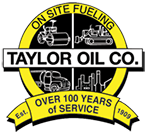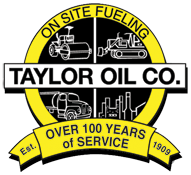Fleet Procedures for COVID-19 – Our fleets are on the front lines of the current global pandemic, COVID-19. We are on the roads 24/7 making mobile oil and gas deliveries to keep the Northeast moving. OSHA’s General Duty Clause requires employers to provide a workplace free from hazards that could cause death or serious physical harm. COVID-19 certainly falls under this. For many employees and business owners, the company vehicle is their workplace.
If you are a fleet manager, you know you must do your part to lower the risk of potential infections among those using your fleet and those with whom your drivers interact. Spread mainly via person-to-person contact, this virus can also be caught by touching infected surfaces, such as company vehicles, then touching the mouth, nose, or eyes.
Tips for Fleet Safety
Drivers and fleet managers: Wipe down frequently-touched vehicle surfaces with a sanitizer and/or disinfectant, such as steering wheel, radio, gear shifter, armrest, door handles and power window buttons.
Drivers: Sanitize equipment, such as scanners, handheld computers, toolboxes, and cart handles that may be used to haul equipment. Keep in mind, alcohol- or ammonia-based cleaners may damage the interior dashboard, seats, and in-cab touch screen terminal displays. View the CDC’s recommended cleaning and disinfecting protocols.
Personal Hygiene: Drivers must sanitize their hands after each delivery or service call is completed. They should also cover coughs and sneezes with a tissue or sleeve to avoid transmitting viral secretions onto the vehicle surfaces. Sanitize all commonly used surfaces throughout the day.
Transporting Crews: Practice social distancing to help slow the spread of the virus. When there is a driver and passenger in one vehicle, the passenger should sit in the back seat. As the fleet owner, you may want to limit the number of passengers in a single vehicle.
Sanitizing Pool Vehicles: Drivers should wipe down every touched surface in their vehicles – once when entering and another time when leaving. Remember, the coronavirus can survive for 72 hours on a surface.
Tools and Equipment: Workers should refrain from using their co-workers’ phones, desk, office, or other work tools if possible. They should clean and disinfect tool belts, gear and equipment commonly used by multiple people.
Disposable Gloves: Make sure latex and non-latex gloves are available for use by drivers.
Refueling: Drivers should wipe down fuel pump handles and keypads before adding their odometer and driver ID. If wipes are not available, use a paper towel to grab the fuel dispenser handle. Fuel cards should also be wiped down. Drivers should dispose of gloves before re-entering the cab.
Cabin Filters: Increase the frequency of replacing cabin filters.
HIPAA Restrictions: The Health Insurance Portability and Accountability Act (HIPAA) prohibits divulging medical information without an employee’s permission. If an employee tests positive, inform human resources and clean the vehicle. Do not mention anyone by name.
Customer Interaction Guidelines: You may want to forego having a customer sign for services or invoices. Instead, the driver can sign on their behalf so pens and devices do not have to be shared. Discourage handshaking.
Mobile Fleet Service Providers: You may choose to minimize driver interaction at service centers by using mobile fleet service providers so vehicles do not have to be taken to a shop.
Resources: Fleet managers should stay on top of governmental policies regarding COVID-19. The CDC provides the latest information about COVID-19 at www.cdc.gov/coronavirus/2019-ncov. OSHA offers information specific to workers and employees at www.osha.gov/covid-19.
It’s your duty as fleet manager to protect drivers and customers. Try to stay positive, be empathetic, and create solutions that help fleet users during this time of uncertainty.
Contact Taylor Oil for more information. We will remain open to deliver product to our valued customers throughout this crisis. You can count on our unwavering service unless ordered by the federal or state government to cease operations.



